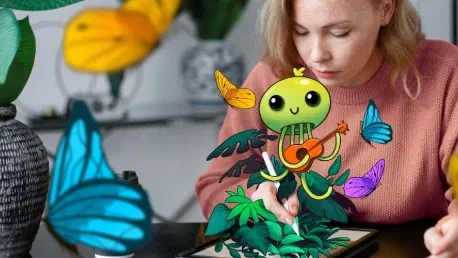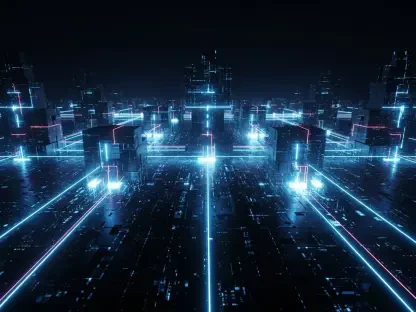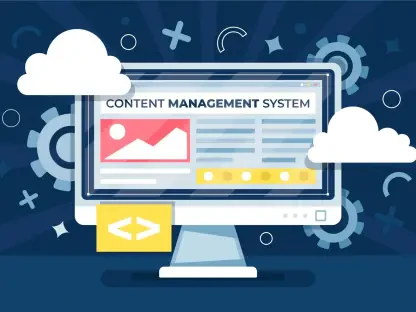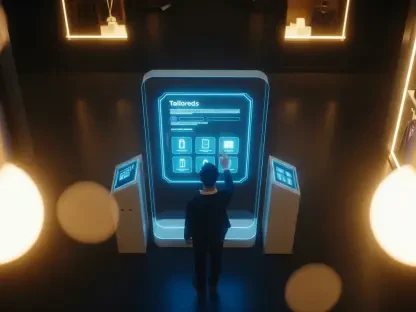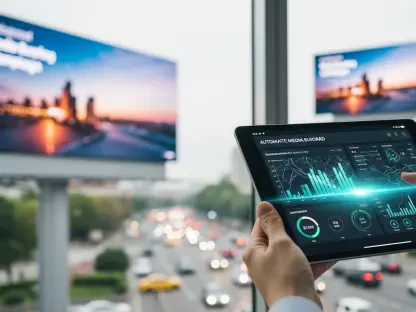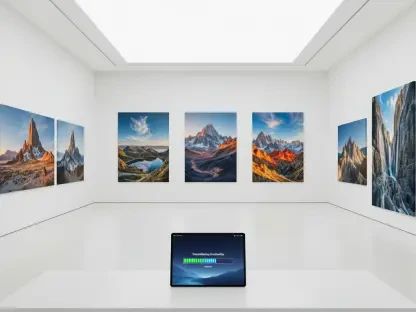Artificial intelligence (AI) has brought forth significant advancements in various sectors, including content creation, sparking debates on whether it is transforming the industry positively or negatively. With AI’s ability to generate content rapidly and at reduced costs, traditional content creators face new challenges that question the essence of authorship, authenticity, and human creativity. The rise of tools like ElevenLabs, capable of producing realistic podcasts, and OpenAI’s Sora, which can create videos, have heightened concerns among writers and artists about their job security and the perceived devaluation of their artistic contributions.
Efficiency vs. Emotional Depth
The Rapid Pace of AI-Generated Content
AI-produced content often lacks the emotional depth and nuanced context that human creators naturally provide, despite AI’s remarkable efficiency. While AI can swiftly generate large volumes of text, audio, and video, the content frequently falls short in conveying the genuine emotions and subtleties essential for effective storytelling and audience engagement. Trust and connection, vital components of successful content, are considerably reduced when the depth of human experience is absent. This deficit invariably leads to lower audience engagement and skepticism regarding the authenticity of AI-generated material.
The ability of AI to replicate style and tone does not compensate for the absence of unique personal experiences and perspectives that human creators bring to the table. AI’s narratives often feel mechanized and impersonal, incapable of capturing the full range of human emotions and the authenticity of lived experiences. Furthermore, audiences who are informed that content is AI-generated may instinctively respond with increased scrutiny and suspicion, impacting the overall reception and influence of the work.
Ethical and Legal Challenges
The emergence of AI in content creation also presents numerous ethical and legal challenges, which need to be meticulously addressed. One significant concern is the issue of intellectual property rights, as AI might inadvertently generate content that closely resembles existing works, leading to potential plagiarism disputes. Additionally, the indistinguishability of AI-created content from human-created content raises complex questions about ownership and originality. Companies utilizing AI tools, such as Coca-Cola in their AI-generated advertisements, have encountered pitfalls where the final product lacked the precise human touch and connection intended for their campaigns.
Given these complexities, establishing clear ethical guidelines and protective legal frameworks becomes imperative. Ensuring that creators receive fair compensation for their work and that their intellectual property is safeguarded is crucial in maintaining a balanced and equitable creative ecosystem. Furthermore, clarity and transparency about the use of AI in content generation are vital for sustaining trust between creators, consumers, and businesses. Without proper regulatory measures, the risk of exploiting creators and compromising the integrity of artistic work remains high.
Potential for Collaboration
Benefits of AI-Human Collaboration
In light of AI’s transformative impact on content creation, there emerges a possibility for fruitful collaboration between AI systems and human creators. Rather than viewing AI as a threat, content creators can harness its potential to manage repetitive and mundane tasks, thus liberating them to concentrate on the more imaginative facets of their projects. This symbiotic relationship can usher in innovative outcomes by combining AI’s unparalleled speed and efficiency with human intuition and creativity, yielding content that is both quantitatively and qualitatively superior.
For example, AI can efficiently handle data gathering, preliminary drafts, or basic editing, tasks that are often time-consuming for human creators. By automating these processes, AI allows creators to focus on refining ideas, developing narratives, and infusing their work with distinctive personal insights and emotions. This collaborative approach can expand the horizons of what is creatively possible, blending technological advancements with the irreplaceable human touch that resonates deeply with audiences.
Continuing Success in a Digital Society
In light of AI’s transformative impact on content creation, there emerges a possibility for fruitful collaboration between AI systems and human creators. The fear is that as AI technologies continue to evolve, the unique human touch that characterizes creative work may be undermined, leading to a future where the originality and depth of human-generated content are compromised. Thus, the debate continues as to whether AI is enhancing or eroding the cultural and creative landscape.
